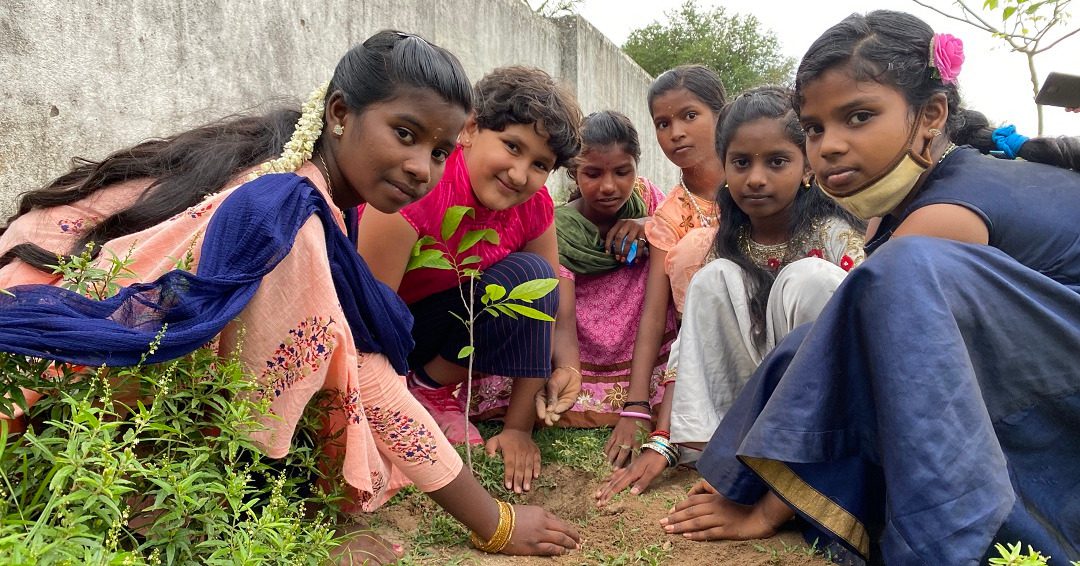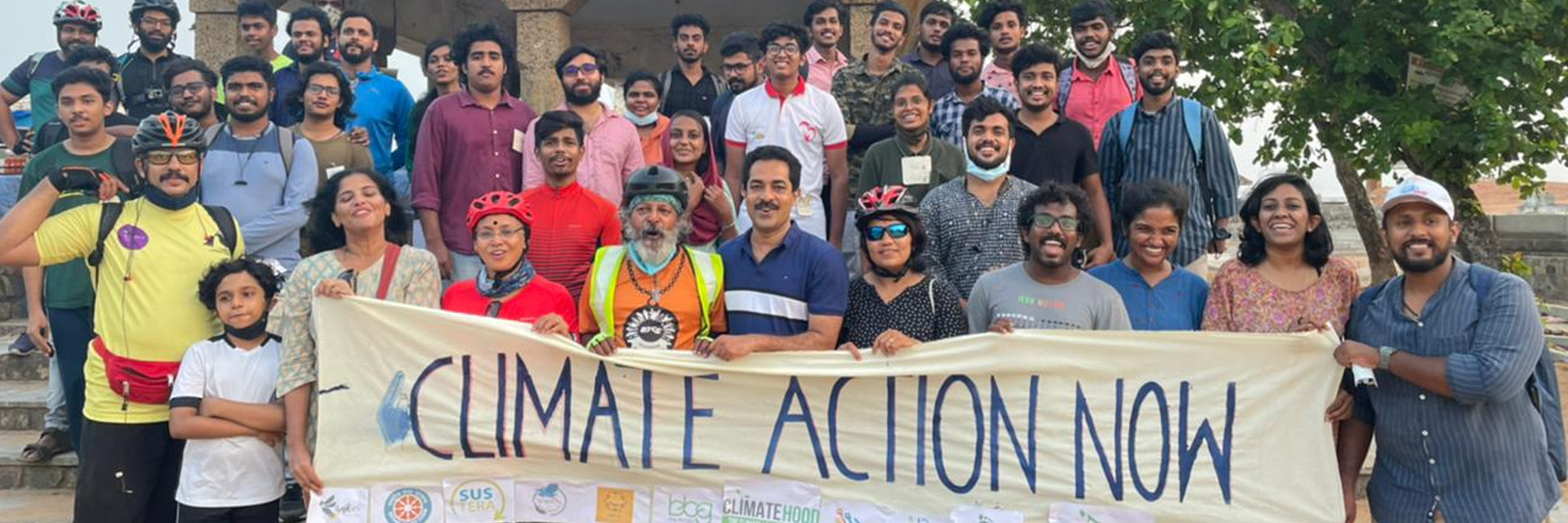(July 16, 2022) Mounted on a small boat, the 21-year-old environmentalist Subhadeep Purkayastha was making his way among the submerged homes to provide relief supplies to the people of Silchar, his hometown in Assam, which was the worst hit by floods, when he heard about winning the Diana Award 2022 for his humanitarian efforts. Calling the piece of news “exciting” and “a great validation”, Subhadeep continued helping the 1000 people in the flood-affected urban areas of Silchar in Assam through his organisation, Eco Alarmist. June brought with it the torrential rains in Assam, and Silchar was one of the most-affected areas. With each home in the district having its own story of bejaan jol or the big flood, individuals came to help each other in the need of the hour. And Subhadeep along with his team of 50 volunteers is never far behind.
“We started by taking SOS messages from people who weren’t getting help from the district administration and tried to send immediate help through people and NGOs present in their location. We, then, moved on to drinking water and food distribution drive, where we handed over these items to more than 1000 people in flood-affected areas,” Subhadeep tells Global Indian. The changemaker also reached out to rural areas with ration kits as soon as the water started to recede. “We provided ration kits to flood-affected tea garden tribes of Rosekandy Tea Estate and supported an animal rescue organisation to feed animals affected by floods,” adds the Ashoka Young Changemaker whose work has impacted over 50,000 people till now.
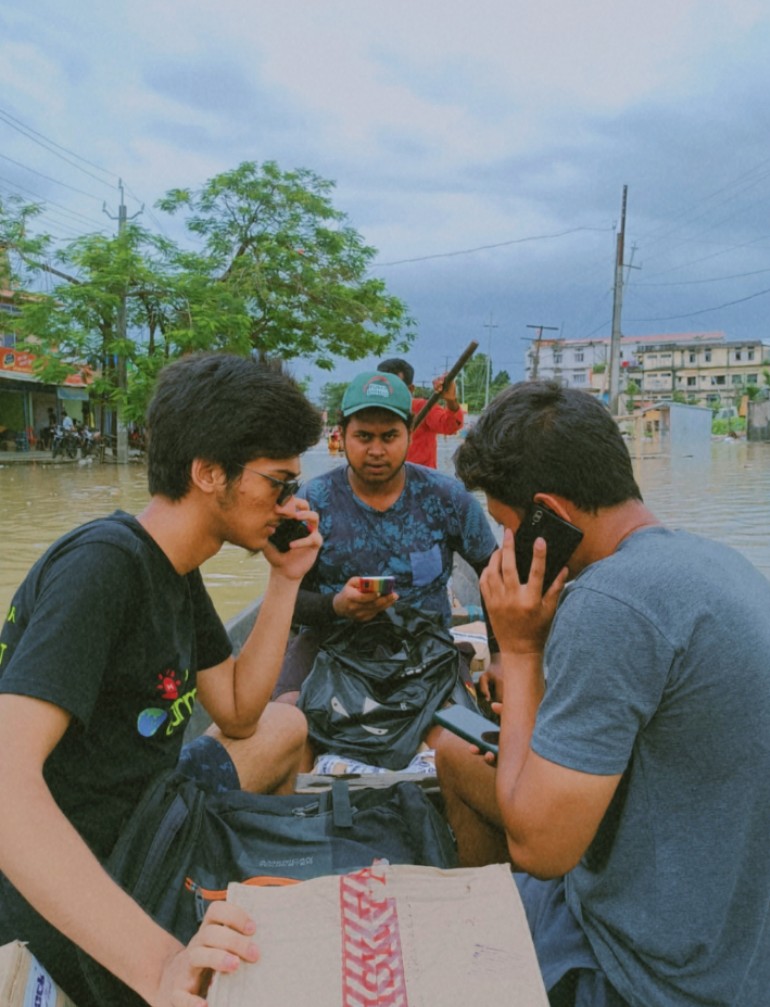
Subhadeep Purkayastha providing relief packages to people of Silchar.
Seeking change as a kid
While the environmentalist is currently up in arms to help his people fight a crisis, the seeds of making a change were planted as a teenager. Learning about terms like global warming, climate change, and sustainable development was a part of his school curriculum, but he saw “no real steps were being taken involving the youth.” Things started to shift in 2016 when he participated in the National Science Project Challenge and presented a model on ‘Sustainable City 2050’. “One of the judges pointed out that our model consisted of styrofoam which is not eco-friendly. At that moment, I couldn’t think of any other alternative but realised that if I wanted to achieve sustainable cities by 2050, I have to start changing these small things which will ultimately add up.”
This journey towards sustainable solutions led to the launch of Eco Alarmist in 2017. At 16, he started his work on environment conservation by “adopting simple measures to transform how businesses work and people lead their lives by making their actions more ecologically sustainable.” In the last few years, the work of Eco Alarmist has expanded across Silchar and Guwahati, wherein it works with “small businesses and startups to incorporate sustainability in their operations, conducts workshops on climate crisis with school students, and sustainable donation and plantation drives.”
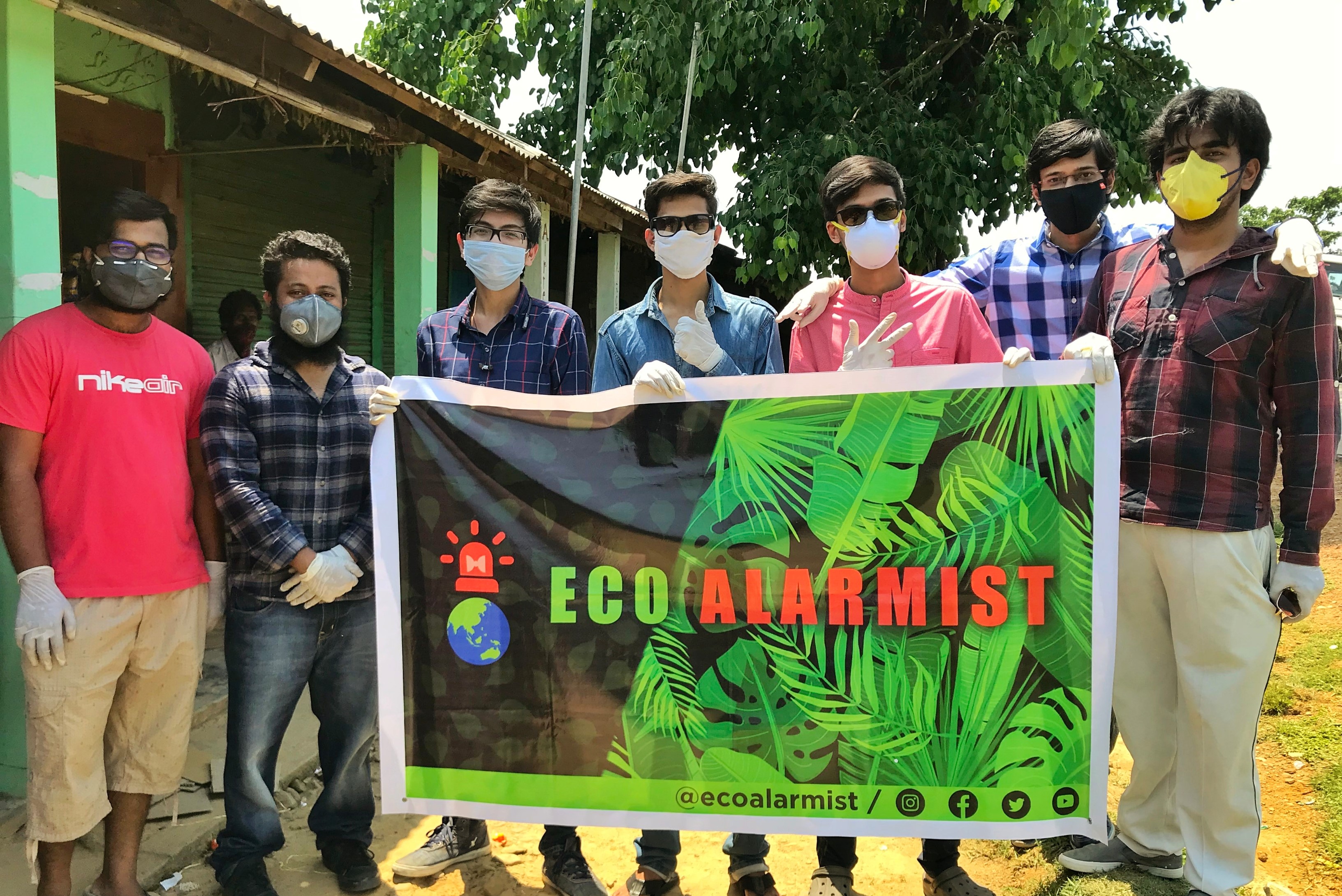

The team of Eco Alarmist
The uphill task
However, the keenness to make a change came with its share of challenges. Being brought up in an “underrepresented part of India where having interest in activities beyond the curriculum isn’t encouraged”, Subhadeep took his time to find a balance. The environmentalist distinguished himself through his service to the community. “In my teen years, I understood and acted on a very important problem and influenced people around to support my venture. I contributed through a new perspective where I learnt more about the environment by working at the grassroots level,” says Subhadeep who learned a great deal about the challenges faced by women and children due to the climate crisis.
“Assam is extremely vulnerable to climate change due to its geographic location and poor socio-economic conditions. It gets annual floods and frequent droughts, and the severity has only risen due to adverse climatic conditions. Climate change is a planetary phenomenon that will impact everyone, but it disproportionately affects women and children. That’s because women are more likely to live in poverty than men, have less access to basic human rights like the ability to freely move and acquire land, and face systematic violence that escalates during periods of instability. These gender inequalities define what women and men can do and cannot do in a particular context of climate change,” says the founder of Eco Alarmist whose organisation is working with these “vulnerable communities” to create awareness on climate crisis and sustainable living. However, Eco Alarmist has a simple strategy to make an impactful change – “adopt simple measures so that it doesn’t burden people or they don’t feel a sudden behavioural change.”
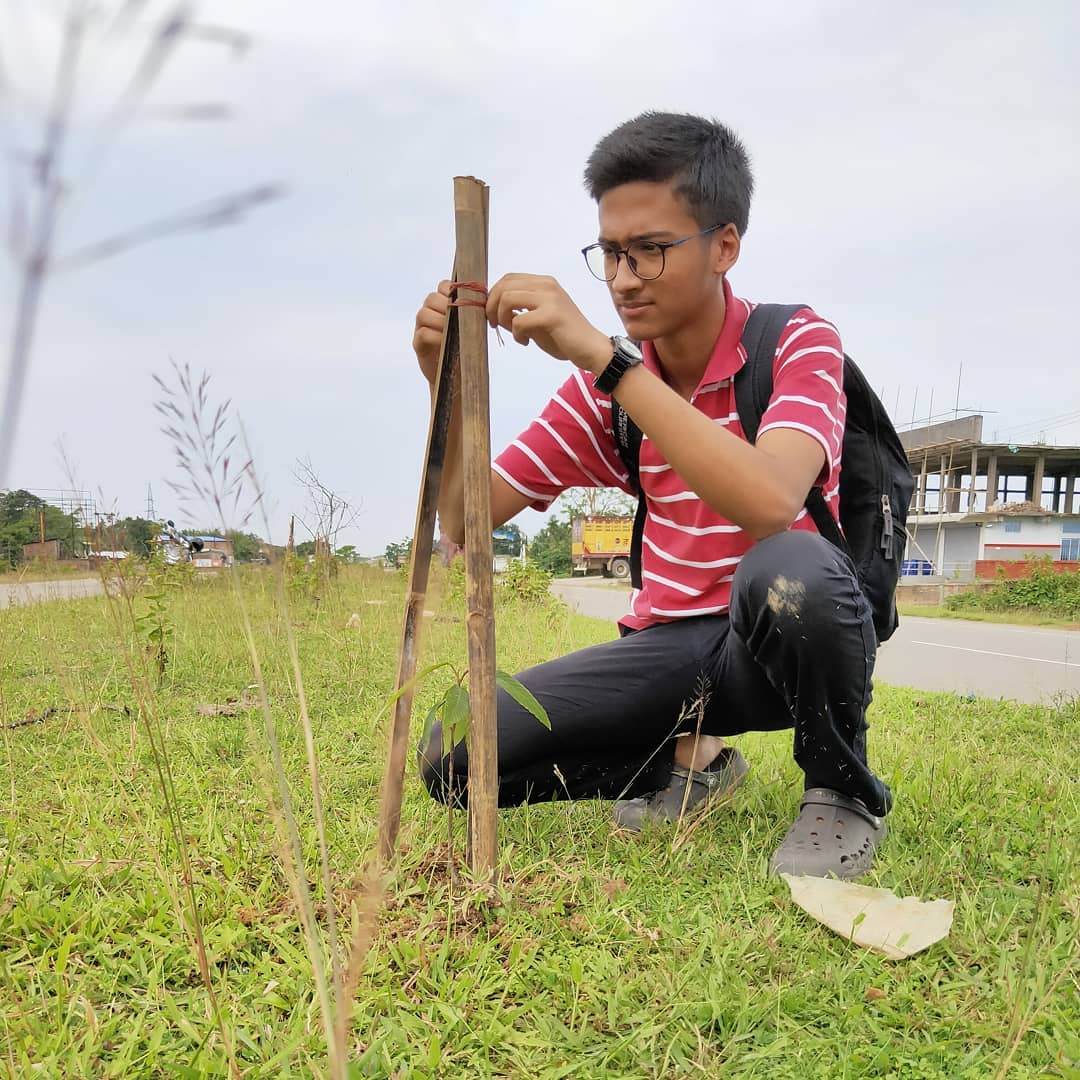

Subhadeep Purkayastha
Leading the way in Covid crisis
During the 2020 lockdown, the Eco Alarmist team put a screeching halt on their regular work and dived into providing Covid-19 relief. It allowed the team to adapt to new challenges.
“Eco Alarmist reached out to over 1,500 daily wagers’ families who lost employment opportunities, including 2020 Assam flood victims, providing them with ration kits, sanitation kits, and pre-loved clothes,” says the environmentalist. When things got serious in the second wave, the team came up with a portal for Covid response, which provided the right information and helps to all the north-eastern states. “The portal consists of services like oxygen, contact numbers of doctors and ambulances, RT-PCR test facilities, mental health helplines, medicines, logistics services, etc. One just needs to enter the portal to get access to more than a thousand verified numbers of the COVID essential services, depending on their state and city/town. We recorded 50k+ footfalls in the helpline portal.”
Eco Alarmist took it upon themselves to supply groceries, and medicines and run errands for Covid patients and their quarantined families. “Items worth US $10,000 were delivered to around 1000 Covid patients with 500 USD worth of delivery charges waived off for Covid patients,” he adds. Moreover, Subhadeep helped organised blood donation drives, free oxygen concentrators, and plasma donation. “It was a huge relief for those in the need,” the environmentalist adds.
The vision – to create change
As soon as the pandemic situation started to ease, Subhadeep returned to working for sustainability. “Our mission is to make urban and rural areas ecologically sustainable and create more awareness on the climate crisis. Our vision is to create a community of aware and conscious citizens and ultimately achieve sustainable cities.”
What began as an initiative has now turned into an organisation, and Subhadeep is hopeful that it will change how non-profits work. “Especially in Northeast India by empowering them with technology and making the non-profit/impact space in India one of the most sought-after,” he adds. Subhadeep, who is currently studying Agriculture Engineering at Assam University, has plans of working in the agri-tech space shortly. When he is not busy with his work or studies, he finds his “escape zone in music.” The environmentalist, who also loves writing songs, calls out to fellow youngsters, “we are the first and the last generation to have the choice to be proud or guilty before our future generations.”


